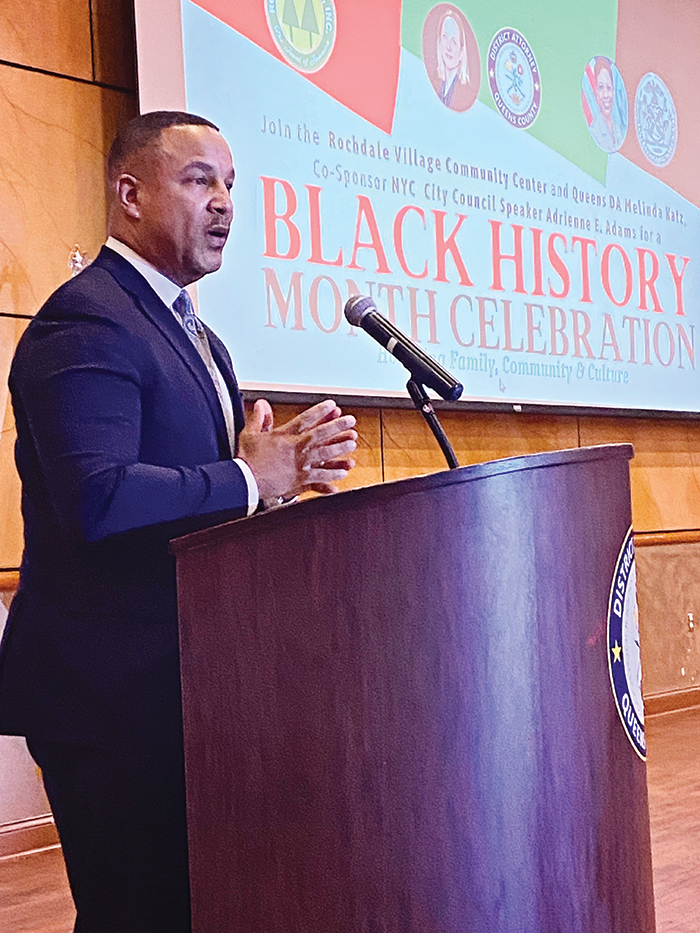Photo Courtesy of U.S. Attorney’s Office, Eastern District of New York
“The new Voluntary Self-Disclosure Policy sets a nationwide standard for how U.S Attorney’s Offices will determine whether a company has made a voluntary self-disclosure, and makes transparent the specific, tangible benefits to a company for making a voluntary self-disclosure, fully cooperating, and remediating the criminal conduct,” Brooklyn U.S. Attorney Peace said.
By Forum Staff
Damian Williams, United States Attorney for the Southern District of New York, and chairman of the Attorney General’s Advisory Committee (AGAC), and Breon Peace, U.S. Attorney for the Eastern District of New York and the chairman of the White Collar Fraud Subcommittee of the AGAC, announced the implementation of the new U.S. Attorney’s Offices’ Voluntary Self-Disclosure Policy.
The policy, which is effective immediately, details the circumstances under which a company will be considered to have made a voluntary self-disclosure (VSD) of misconduct to a United States Attorney’s Office (USAO). The policy provides transparency and predictability to companies and the defense bar concerning the concrete benefits and potential outcomes in cases where companies voluntarily self-disclose misconduct, fully cooperate, and timely and appropriately remediate. The goal of the policy is to standardize how VSDs are defined and credited by USAOs nationwide, and to incentivize companies to maintain effective compliance programs capable of identifying misconduct, expeditiously and voluntarily disclose and remediate misconduct, and cooperate fully with the government in corporate criminal investigations.
The policy was developed pursuant to the Deputy Attorney General’s Sept. 15, 2022 memorandum, “Further Revisions to Corporate Criminal Enforcement Policies Following Discussions with Corporate Crime Advisory Group” (Monaco Memo), which directed each Department of Justice (DOJ) component to develop and publish a VSD policy.
Under the new VSD policy, a company is considered to have made a VSD if it becomes aware of misconduct by employees or agents before that misconduct is publicly reported or otherwise known to the DOJ, and discloses all relevant facts known to the company about the misconduct to a USAO in a timely fashion prior to an imminent threat of disclosure or government investigation. A company that voluntarily self-discloses as defined in the policy and fully meets the other requirements of the policy, by—in the absence of any aggravating factor—fully cooperating and timely and appropriately remediating the criminal conduct (including agreeing to pay all disgorgement, forfeiture, and restitution resulting from the misconduct), will receive significant benefits, including that the USAO will not seek a guilty plea; may choose not to impose any criminal penalty, and in any event will not impose a criminal penalty that is greater than 50 percent below the low end of the United States Sentencing Guidelines
(USSG) fine range; and will not seek the imposition of an independent compliance monitor if the company demonstrates that it has implemented and tested an effective compliance program.
“The new Voluntary Self-Disclosure Policy sets a nationwide standard for how U.S Attorney’s Offices will determine whether a company has made a voluntary self-disclosure, and makes transparent the specific, tangible benefits to a company for making a voluntary self-disclosure, fully cooperating, and remediating the criminal conduct,” Peace said. “As a result, no matter where in the country a company operates, it can rely on receiving the same treatment and benefits for voluntarily self-disclosing criminal conduct to a U.S. Attorney’s Office. We hope and expect that companies, as good corporate citizens, will take advantage of this new policy to report criminal misconduct by employees and agents when they become aware of it, so that individual wrongdoers can be held accountable. When they do, they will have far better and more predicable outcomes under this policy.”

